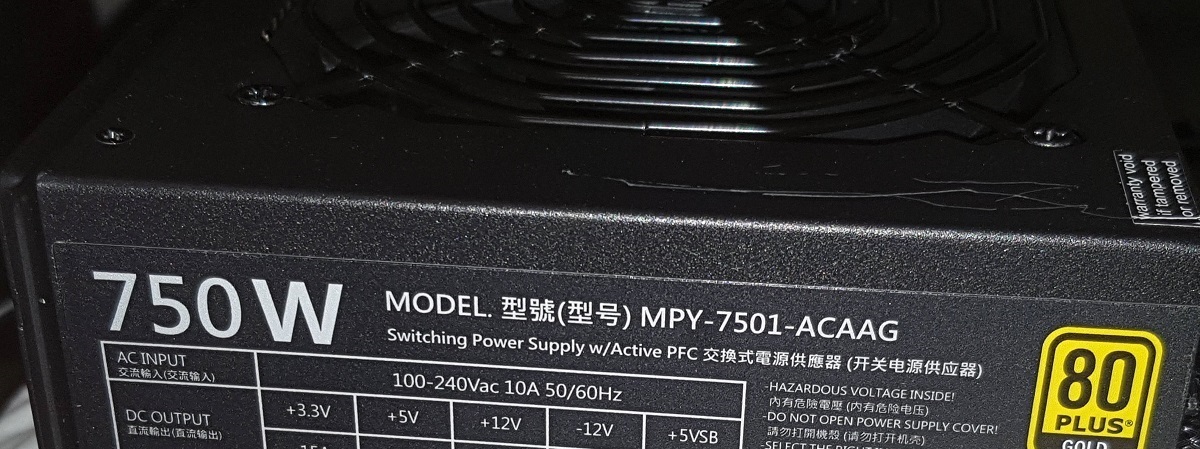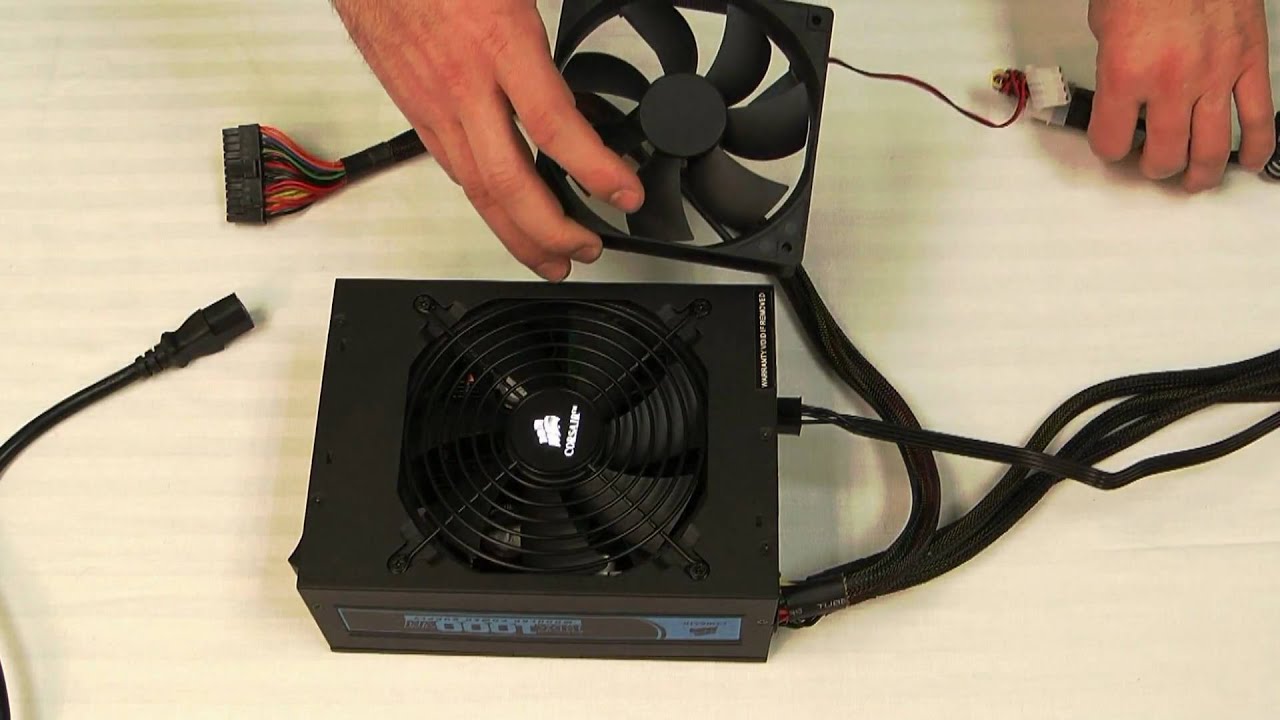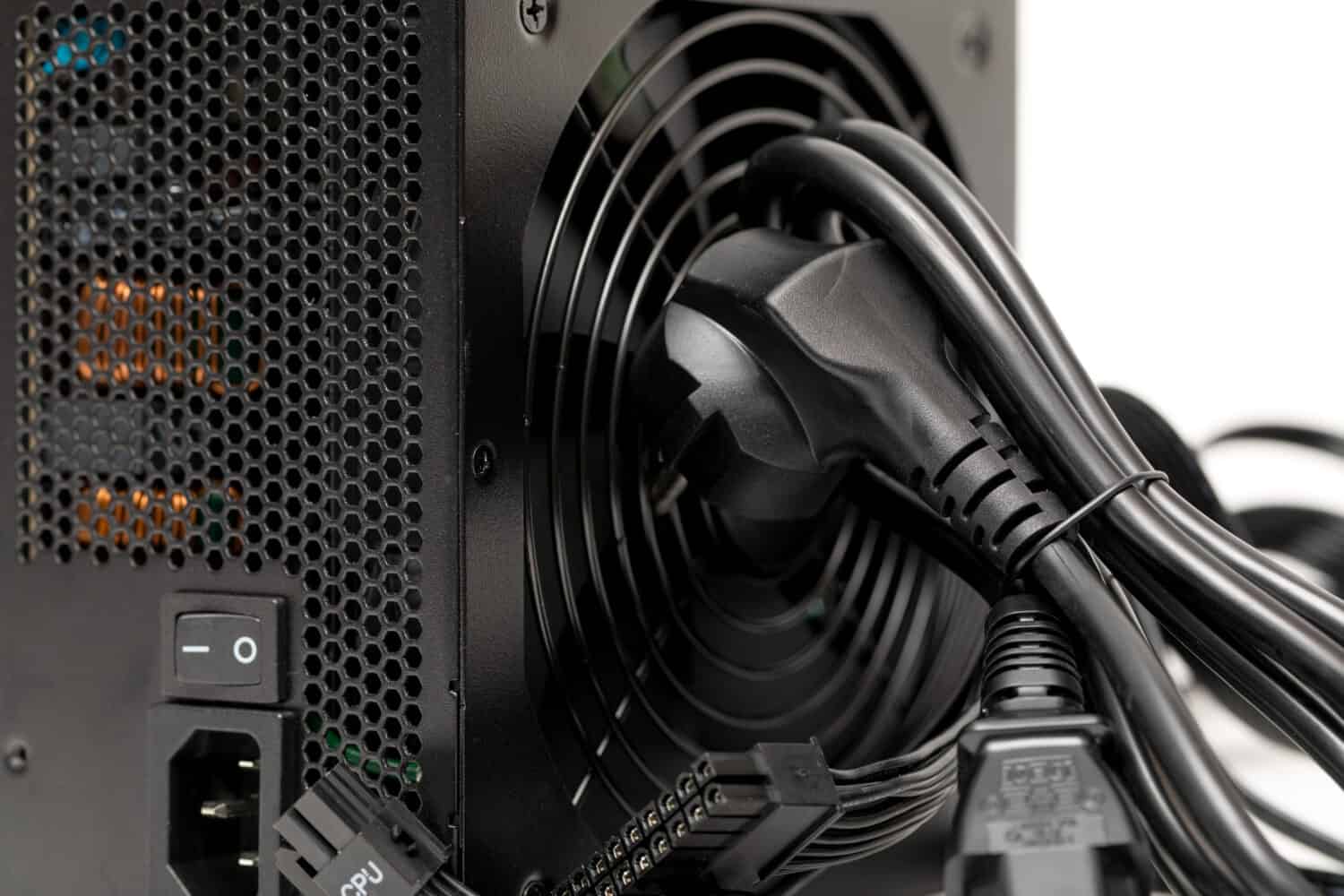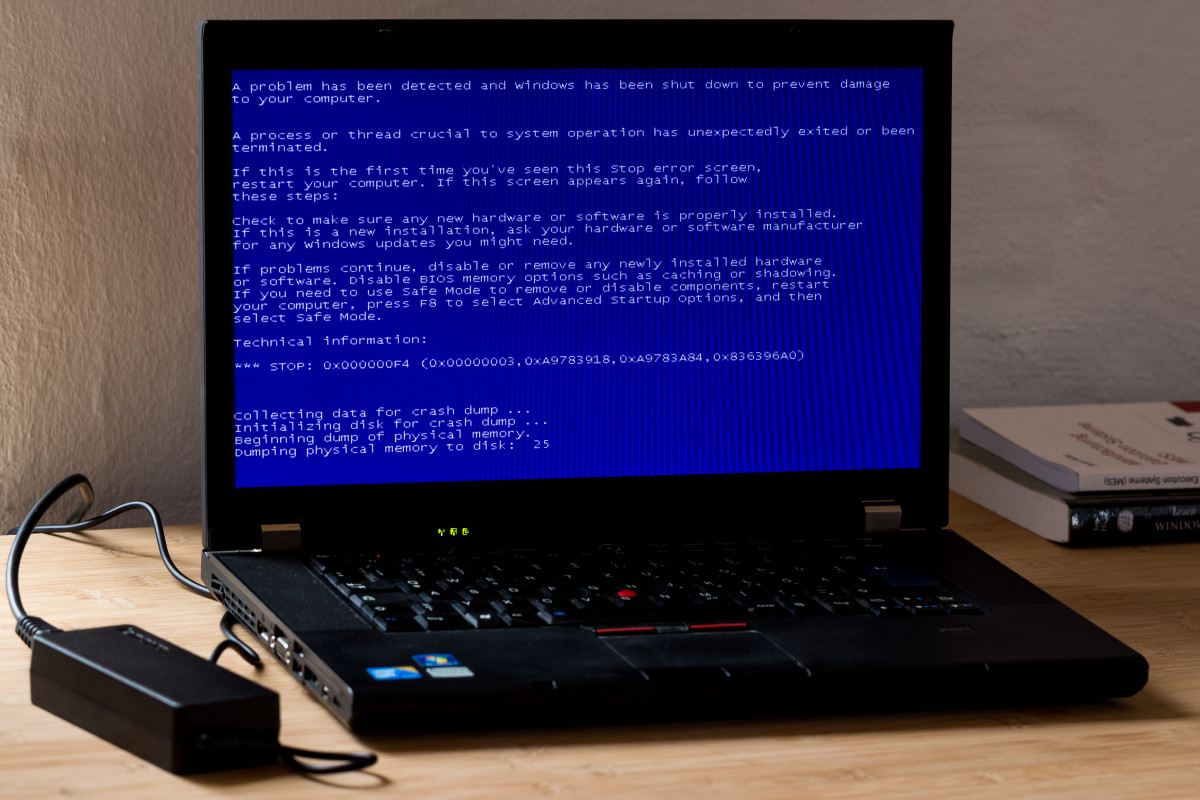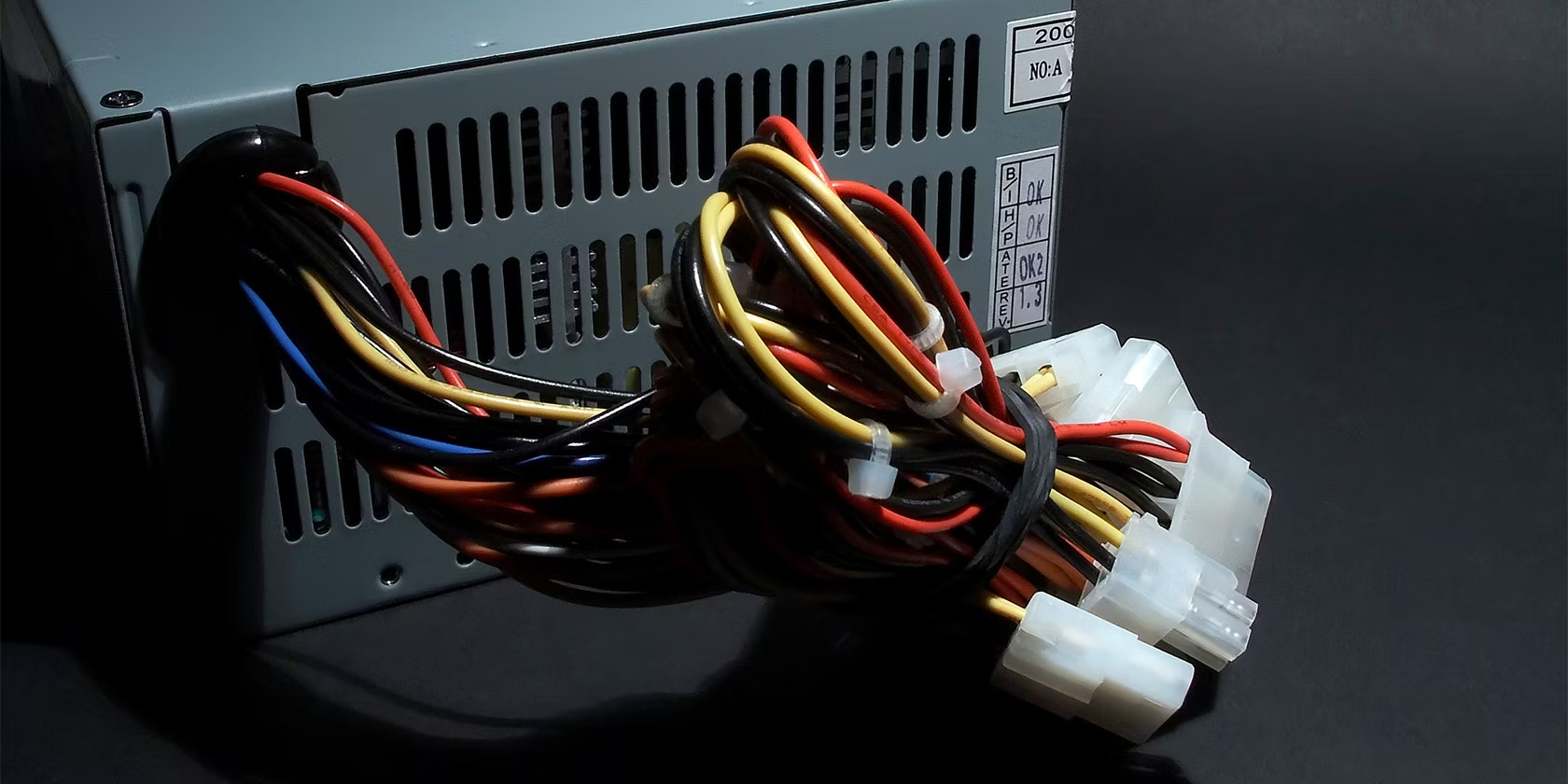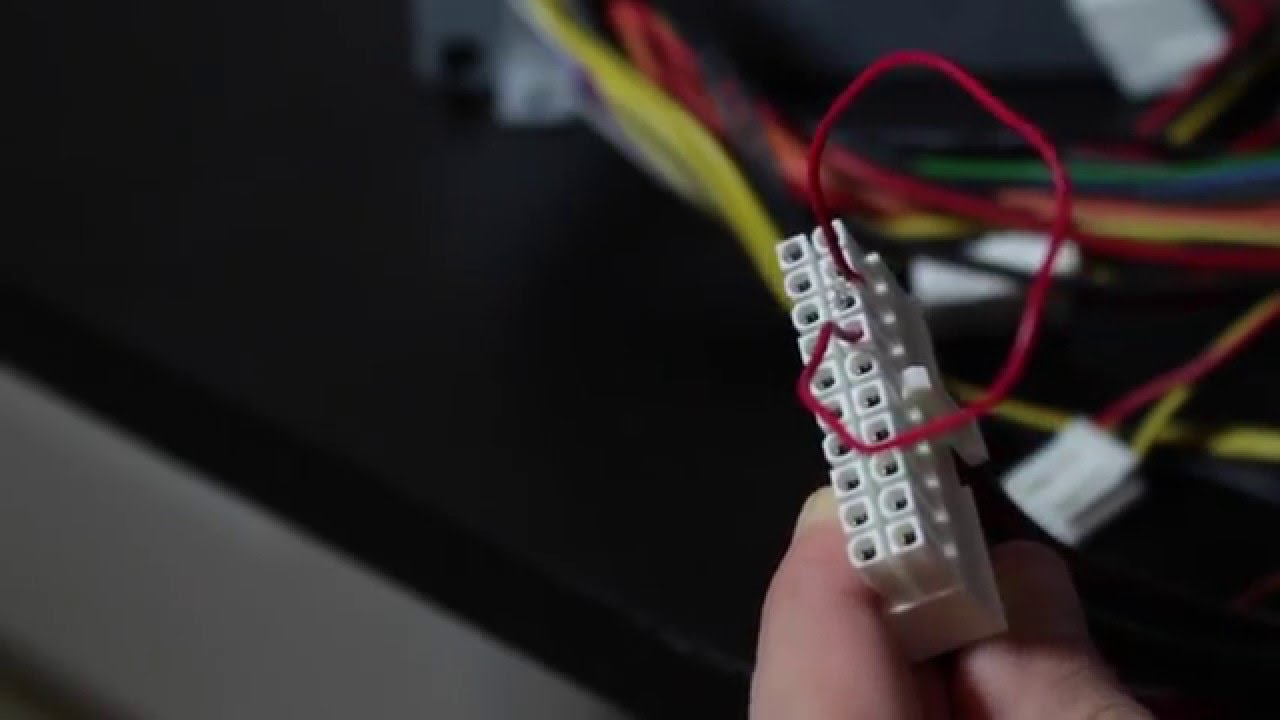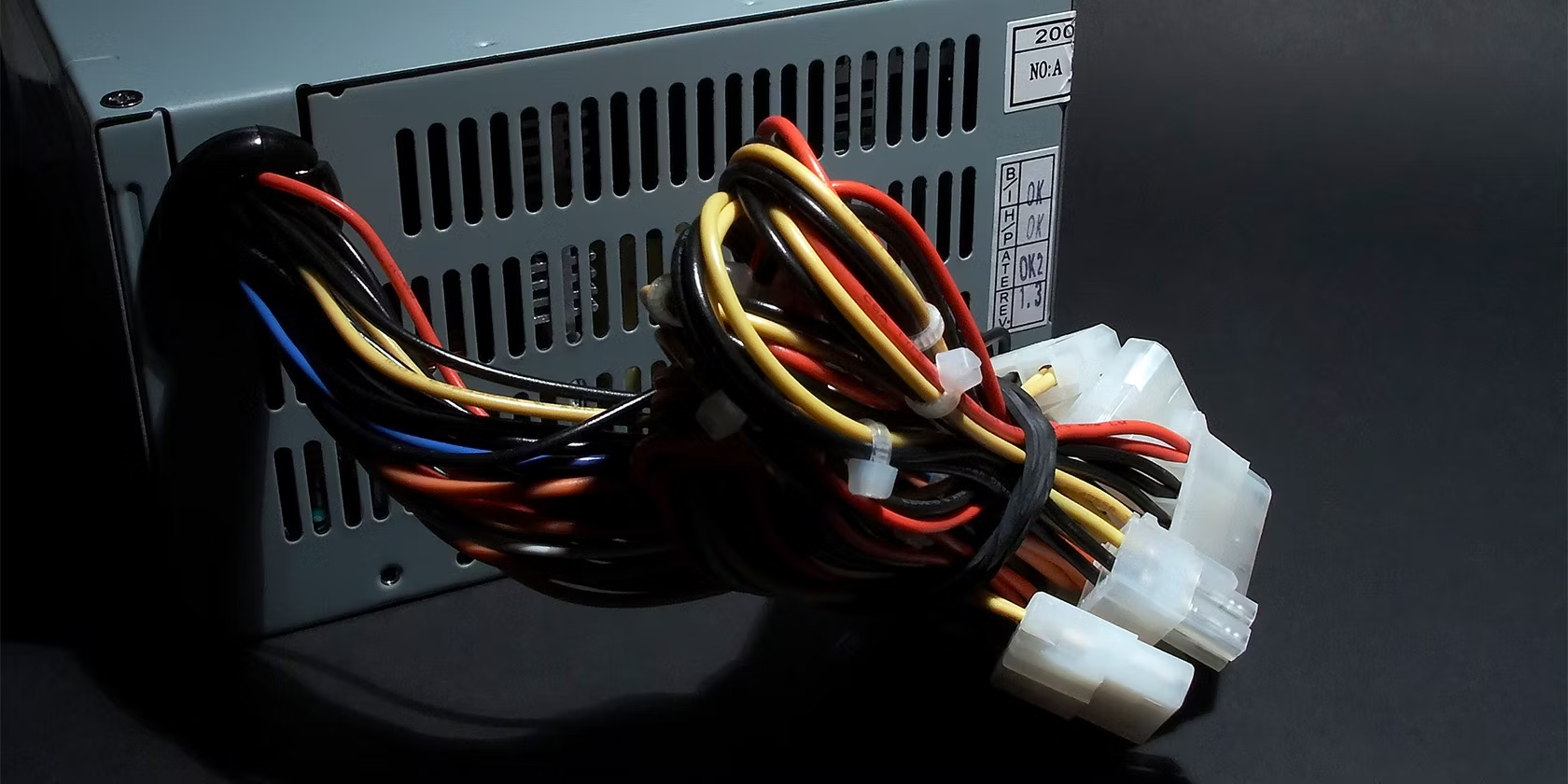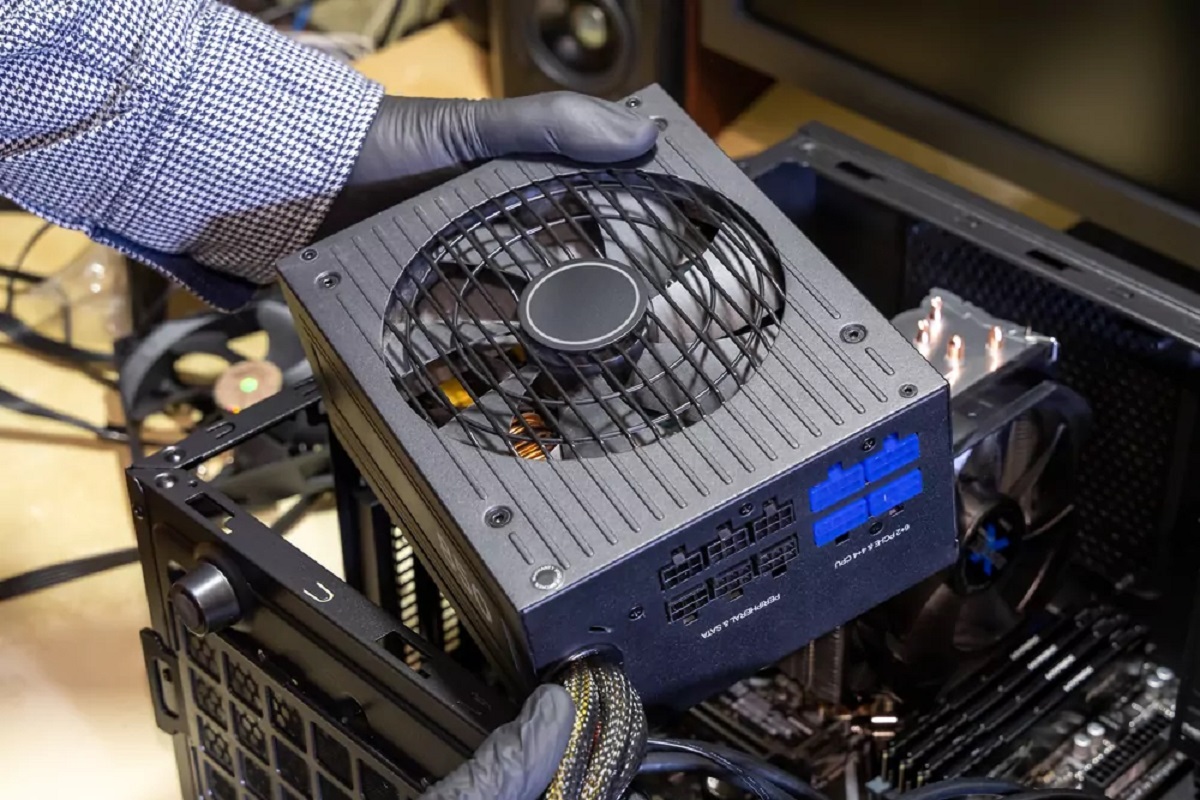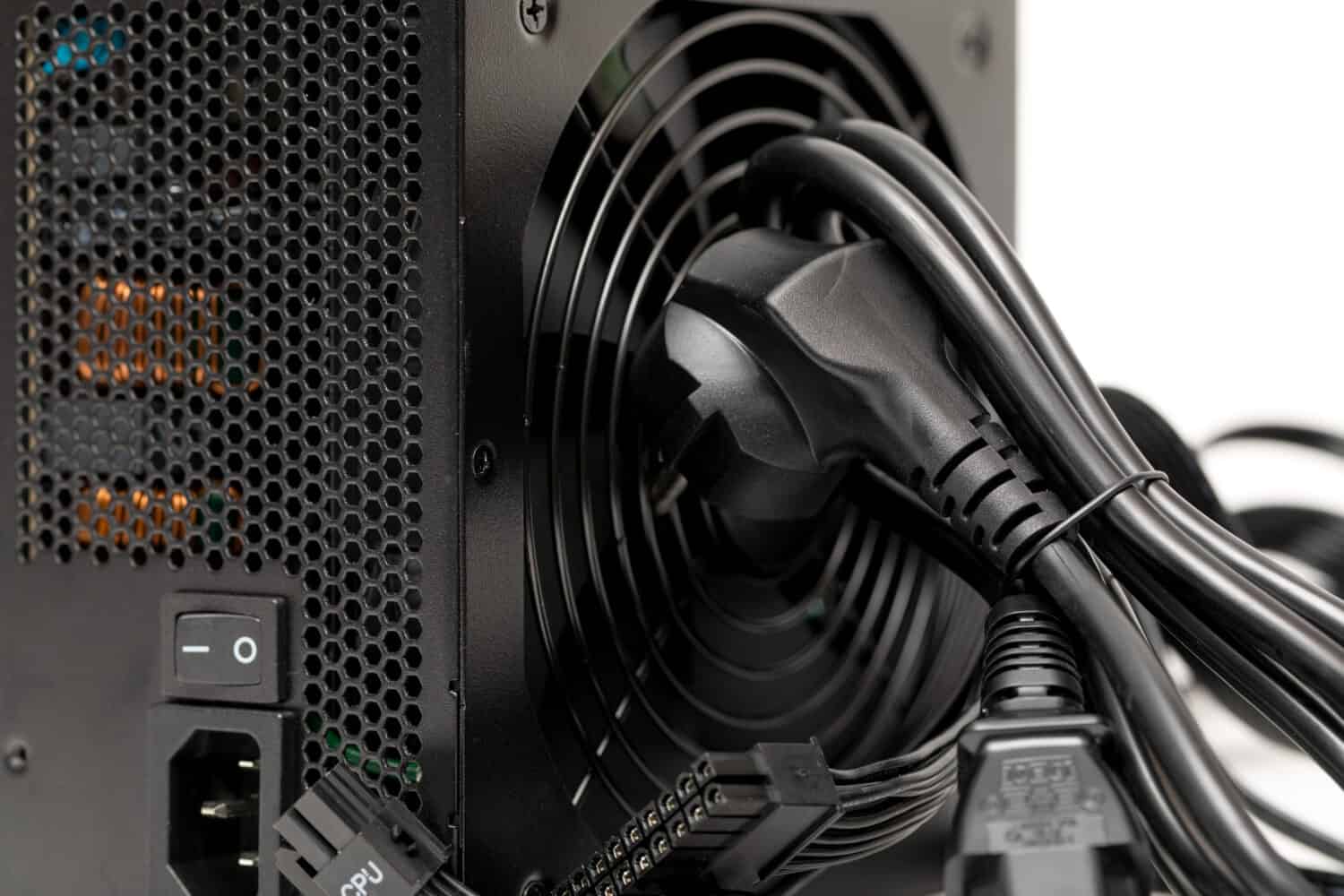Introduction
When it comes to computer failures, one component that often gets overlooked is the power supply unit (PSU). The PSU is responsible for providing the necessary power to all the components in a computer system. Without a reliable and functioning PSU, the entire system can come crashing down.
Understanding the role of the PSU and its potential impact on other components in the system is crucial for any computer user. Whether you’re a casual user or a professional, knowing the signs of PSU failure and how it can affect your computer components is vital for troubleshooting and preventing further damage.
In this article, we will explore the common signs of PSU failure, examine whether a failing PSU can damage other components, and discuss how different components are affected when a PSU fails. We will also provide some tips for preventing damage from PSU failures.
So, if you’ve ever wondered whether a PSU failure can cause damage to your computer’s components, or if you want to learn how to protect your system from such failures, read on to find out more.
What is a PSU and its role in a computer system?
A power supply unit (PSU) is a crucial component in a computer system that converts AC (alternating current) power from an electrical outlet into DC (direct current) power that the computer requires. It acts as a bridge between the power source and the various components of the computer, ensuring they receive the correct voltage and wattage.
The PSU plays a vital role in providing power to the motherboard, CPU, graphics card, hard drives, and other peripherals. Without a properly functioning PSU, the computer would not be able to receive consistent and reliable power, leading to system instability, crashes, and potential damage to the components.
PSUs come in different wattages and ratings, depending on the power requirements of the computer system. Higher-end systems and gaming rigs typically require PSUs with higher wattages to handle the increased power demands of powerful processors and graphics cards.
Additionally, PSUs have built-in mechanisms to protect the system from various electrical issues. They include features like overvoltage protection (OVP), undervoltage protection (UVP), short circuit protection (SCP), and overcurrent protection (OCP) to safeguard the components from potential damage caused by voltage fluctuations or power surges.
In summary, the PSU serves as the backbone of a computer system by converting and delivering the correct power supply to all the components. Its role is essential in ensuring the stability, reliability, and longevity of the computer’s hardware components.
Common signs of PSU failure
A failing power supply unit (PSU) can cause a range of issues in a computer system. Recognizing the signs of PSU failure is crucial in order to address the problem before it leads to potential damage or system failure.
Here are some common signs that indicate a PSU may be failing:
- Random shutdowns or system instability: If your computer suddenly shuts down without warning or experiences frequent crashes, it could be a sign of PSU failure. The PSU may not be delivering consistent power to the components, resulting in system instability.
- Overheating: A faulty PSU may not be able to supply adequate cooling to the system, leading to increased temperatures. If you notice that your computer is running hotter than usual or if the fans are constantly running at high speeds, it could be due to a failing PSU.
- Strange noises: Unusual noises, such as grinding, buzzing, or whining sounds, coming from the PSU or the computer case can indicate a problem. These noises may be caused by a malfunctioning fan or internal component within the PSU.
- Inconsistent or fluctuating power: If you notice that the computer experiences power fluctuations, such as screen flickering or dimming, it may point to a failing PSU. Inconsistent power delivery can lead to voltage drops or spikes that affect the stability of the system.
- Delayed start-up or failure to boot: A failing PSU may cause delays in the computer’s start-up process or prevent it from booting altogether. This can occur because the PSU is not providing sufficient power for the system to initialize properly.
If you experience any of these symptoms, it is important to address them promptly to prevent further damage. Seeking professional assistance or replacing the PSU with a reliable and compatible unit can help restore the stability and performance of your computer system.
Can a failing PSU damage components?
Yes, a failing power supply unit (PSU) has the potential to damage components in a computer system. When a PSU starts to fail, it may not be able to provide the necessary power in a consistent and stable manner. This can result in various issues that can negatively impact the other components.
One of the most significant dangers of a failing PSU is voltage instability. When the voltage output from the PSU fluctuates or deviates from the expected levels, it can lead to an unsteady power supply to the components. This can cause electrical stress and damage to the sensitive electronic circuits of the motherboard, CPU, graphics card, and other peripherals.
Furthermore, a faulty PSU may not deliver sufficient power to meet the demands of the components. This can lead to insufficient power supply to the various parts of the system, resulting in performance issues, system crashes, or even component failure.
In some cases, a failing PSU may also produce power surges or spikes, which can be extremely harmful to the components. These sudden bursts of excessive voltage can overload and damage the sensitive electronic components, including the motherboard, CPU, RAM, and storage devices.
It is important to note that not all failing PSUs will cause immediate damage to the components. The severity of the damage depends on the specific circumstances and the extent of the PSU’s failure. However, ignoring the signs of PSU failure and continuing to use a faulty unit can increase the risk of component damage over time.
To protect your computer components from potential damage caused by a failing PSU, it is crucial to address any signs of PSU failure promptly. This may involve replacing the faulty PSU with a reliable and compatible unit, ensuring proper cooling and ventilation in the system, and regularly monitoring the system’s performance and power supply stability.
By taking proactive measures to address PSU issues, you can safeguard the integrity and longevity of your computer components, preventing costly repairs and downtime.
How PSU failures can affect different components
When a power supply unit (PSU) fails, it can have detrimental effects on various components in a computer system. The impact of a failing PSU can vary depending on the specific component and the severity of the PSU failure. Here’s a look at how different components can be affected:
- Motherboard: The motherboard is the central hub that connects and coordinates all the components in a computer. A failing PSU can send inconsistent power or voltage fluctuations to the motherboard, causing damage to its delicate circuits. This can result in various issues, including system instability, failure to boot, or complete motherboard failure.
- CPU: The central processing unit (CPU) is the brain of the computer, and it requires a stable and consistent power supply to function optimally. A failing PSU may not provide sufficient power to the CPU, leading to performance issues, system freezes, or even CPU overheating. In severe cases, the CPU may become damaged, requiring a replacement.
- Graphics Card: Graphics cards are power-hungry components, especially in gaming or graphic-intensive applications. A failing PSU may not supply adequate power to the graphics card, resulting in graphical artifacts, screen flickering, or system crashes. Continued use of a failing PSU can cause permanent damage to the graphics card, requiring a replacement or repair.
- Hard Drive: The hard drive is responsible for storing data on a computer. A failing PSU can cause power fluctuations or sudden power loss, which can lead to data corruption or loss on the hard drive. In severe cases, the hard drive may become physically damaged, making data recovery difficult or impossible.
- RAM: Random Access Memory (RAM) modules are essential for temporary data storage and fast access by the CPU. Inadequate power supply from a failing PSU can cause data corruption or system crashes. Faulty RAM modules can also be mistaken for PSU issues, so it’s important to diagnose the problem accurately to prevent further damage to the RAM or other components.
In addition to these components, other peripherals, such as fans, optical drives, and USB devices, can also be affected by a failing PSU. Any component that relies on a stable and consistent power supply is at risk when the PSU is malfunctioning.
To mitigate the risk of component damage from PSU failures, it is crucial to address any signs of PSU failure promptly. Regularly monitor the system’s performance, ensure adequate cooling, and consider replacing a failing PSU with a reliable and compatible unit to protect your computer components and ensure the longevity of your system.
Motherboard
The motherboard is a vital component in a computer system, acting as the central hub that connects and coordinates all other components. When a power supply unit (PSU) fails, it can have significant consequences for the motherboard.
A failing PSU can send inconsistent power or voltage fluctuations to the motherboard, which houses sensitive electronic circuits. These voltage irregularities can damage the motherboard’s components, such as transistors, capacitors, or traces. As a result, the motherboard may experience various issues, including system instability, failure to boot, or even complete motherboard failure.
In some cases, a failing PSU can lead to power surges or spikes, which can overload the motherboard’s circuits and cause physical damage. This can result in burnt-out components or melted elements on the motherboard.
Indications of motherboard damage due to a failing PSU include random system crashes, frequent freezes, or failure to start. Additionally, you may also observe unusual behavior such as unexpected restarts or the inability to enter the BIOS setup. These symptoms often point toward a PSU issue affecting the motherboard.
It’s crucial to address any signs of motherboard damage caused by a failing PSU promptly. Ignoring the problem can lead to further damage and potential data loss stored on the motherboard, such as BIOS settings, device configurations, or firmware updates.
If you suspect motherboard damage due to a failing PSU, it is advisable to consult a professional technician who can diagnose and assess the extent of the damage. They can provide expert advice on whether the motherboard needs repair or replacement.
To prevent damage to the motherboard from PSU failures, consider investing in a high-quality PSU with appropriate wattage for your system. Regularly monitor the PSU’s performance, keep the computer’s internal components clean and free from dust, and ensure adequate cooling to maintain a stable and consistent power supply to the motherboard.
By taking proactive measures to address PSU-related motherboard issues, you can safeguard the functionality and longevity of your computer system.
CPU
The CPU (Central Processing Unit) is often referred to as the “brain” of a computer, as it handles the majority of the system’s calculations and operations. A failing power supply unit (PSU) can have detrimental effects on the CPU’s performance and even lead to potential damage.
A CPU requires a stable and consistent power supply to function optimally. When a PSU fails, it may not be able to provide the necessary power to the CPU, resulting in various issues. One common problem is decreased performance, as an insufficient power supply can limit the CPU’s processing capabilities. This can manifest as slow performance, lagging applications, or overall system sluggishness.
In more severe cases, a failing PSU can lead to CPU overheating. If the PSU is unable to supply enough power for proper cooling, the CPU can reach high temperatures, risking thermal damage. Overheating can cause system instability, unexpected shutdowns, or permanent hardware damage.
Recognizing signs of CPU damage caused by a failing PSU is crucial. Symptoms may include system instability, frequent crashes, or the “blue screen of death” (BSOD). Additionally, if you notice unusually high CPU temperatures or constant fan noise, it could indicate a PSU issue affecting the CPU.
If you suspect CPU damage due to a failing PSU, it is recommended to consult a professional technician. They can diagnose the extent of the damage and provide guidance on repair or replacement options.
To prevent CPU damage from PSU failures, ensure you have a PSU with sufficient wattage to meet the power requirements of your system. Regularly monitor CPU temperatures and ensure adequate cooling, such as proper ventilation and the use of efficient CPU coolers. Additionally, keeping the PSU and other components clean from dust buildup can help maintain optimal performance.
By addressing PSU-related CPU issues in a timely manner and taking proactive measures, you can protect the functionality and longevity of your CPU, ensuring smooth and efficient operation of your computer system.
Graphics Card
The graphics card, also known as the GPU (Graphics Processing Unit), is responsible for rendering and displaying images, videos, and animations on your computer screen. When a power supply unit (PSU) fails, it can have adverse effects on the performance and longevity of the graphics card.
A failing PSU may not supply sufficient power to meet the demands of the graphics card, especially in gaming or graphic-intensive applications. Insufficient power can cause several issues, such as graphical artifacts, screen flickering or freezing, or even system crashes. These problems can severely impact your visual experience and hinder the functionality of the graphics card.
Moreover, a failing PSU can produce power surges or spikes, which pose a significant risk to the sensitive electronic components of the graphics card. These sudden bursts of excessive voltage can overload the graphics card’s circuits, leading to permanent damage or even complete failure.
Signs of graphics card damage caused by a failing PSU may include distorted graphics, strange colors or patterns on the screen, or sudden black screens during gaming or graphic-intensive tasks. Additionally, if you experience frequent crashes or system instability when using graphics-intensive applications, it could indicate a PSU-related issue affecting the graphics card.
If you suspect graphics card damage due to a failing PSU, it is essential to address the problem promptly. Consider consulting a professional technician who can assess the extent of the damage and provide guidance on repair or replacement.
To prevent graphics card damage from PSU failures, ensure you have a PSU that can adequately handle the power requirements of your system, including the graphics card. High-end GPUs often require higher wattage PSUs to deliver the necessary power. Additionally, maintaining proper cooling and ventilation in your computer case can help prevent overheating and potential damage to the graphics card.
By being proactive in addressing PSU-related graphics card issues and ensuring a reliable power supply, you can protect the performance and longevity of your graphics card, allowing for smooth and immersive visual experiences.
Hard Drive
The hard drive is a crucial component responsible for storing and retrieving data on your computer. When a power supply unit (PSU) fails, it can have detrimental effects on the functionality and integrity of the hard drive.
A failing PSU can cause power fluctuations or sudden power loss, which can lead to data corruption or loss on the hard drive. Power interruptions during data read or write operations can result in incomplete or damaged data, rendering it inaccessible or causing file system errors.
In more severe cases, a failing PSU can produce power surges or spikes. These sudden bursts of excessive voltage can overload the delicate electronic components within the hard drive, leading to physical damage. In such situations, the hard drive may experience mechanical failure or even cease to function altogether.
Signs of hard drive damage caused by a failing PSU include frequent disk errors, system crashes, or the inability to access data. You may encounter unusual noises emanating from the hard drive, such as clicking, grinding, or whirring sounds, which can be indicative of mechanical issues resulting from power fluctuations.
If you suspect hard drive damage due to a failing PSU, it is crucial to address the problem promptly to prevent further data loss. Consulting a professional technician is advisable, as they can assess the extent of the damage and recommend appropriate solutions, such as data recovery or hard drive replacement.
To prevent hard drive damage from PSU failures, ensure you have a reliable and stable power supply. Consider investing in a high-quality PSU that can deliver consistent power to all components, including the hard drive. Additionally, using uninterruptible power supply (UPS) systems can provide backup power during sudden outages, protecting the hard drive from sudden power loss.
Regularly backing up important data to an external storage medium or cloud-based storage is also essential. This precautionary measure can help mitigate the risk of data loss in the event of hard drive damage or failure.
By taking proactive measures to address PSU-related issues and ensuring a stable power supply, you can protect the functionality and longevity of your hard drive, preserving your valuable data and preventing potential disruptions to your workflow.
RAM
Random Access Memory (RAM) plays a critical role in computer performance, as it allows for temporary data storage and speedy access by the CPU. While a power supply unit (PSU) primarily provides power to the system, a failing PSU can indirectly impact the performance and functionality of the RAM.
A failing PSU can lead to voltage fluctuations or inconsistent power supply to the motherboard. These voltage irregularities can affect the stability and reliability of the RAM modules. Inadequate power supply can result in data corruption or system crashes, as the RAM may struggle to properly store and retrieve data.
Voltage spikes or surges caused by a failing PSU also pose a risk to the RAM. These sudden increases in voltage can overload the sensitive electronic components within the RAM, leading to physical damage. In such cases, the RAM may become permanently non-functional or exhibit intermittent failures.
Signs of RAM issues caused by a failing PSU can include frequent system crashes, program errors, or the dreaded “blue screen of death” (BSOD). You may also experience application freezes or encounter memory-related error messages.
If you suspect RAM damage due to a failing PSU, it is essential to address the problem promptly. Testing the RAM using diagnostic tools or consulting a professional technician can help identify any faults or errors.
To prevent RAM issues from PSU failures, ensure you have a reliable PSU that can supply sufficient and consistent power to the motherboard. Consider the power requirements of the RAM modules when selecting a suitable PSU. Regularly monitoring the system’s performance and addressing any signs of PSU failure promptly can help protect the RAM from potential damage.
It’s worth noting that RAM issues can sometimes be mistaken for PSU-related problems. Therefore, accurate diagnosis is crucial to prevent unnecessary replacement or repair expenses.
By maintaining a stable power supply and promptly addressing any PSU-related RAM issues, you can ensure optimal performance and reliability of your computer system, minimizing the risk of data loss or system instability.
Preventing damage from PSU failures
Preventing damage from power supply unit (PSU) failures is crucial in maintaining the stability and longevity of your computer system. By implementing proactive measures, you can minimize the risk of component damage and potential data loss. Here are some steps you can take:
- Invest in a reliable PSU: Choose a high-quality power supply unit from a reputable manufacturer. Look for PSUs with adequate wattage to meet the power requirements of your system. Opting for a PSU with features like overvoltage protection (OVP), undervoltage protection (UVP), and short circuit protection (SCP) can provide an extra layer of defense against power-related issues.
- Maintain proper cooling: Ensure that your computer’s cooling system is efficient and properly maintained. Overheating can contribute to PSU failures and, in turn, can potentially damage other components. Regularly clean the system’s fans, vents, and heat sinks to prevent dust buildup that can obstruct airflow and increase the risk of overheating.
- Monitor PSU performance: Keep an eye on the performance of your PSU and any warning signs of failure. Use software tools to monitor voltage, temperature, and fan speeds. Sudden changes or fluctuations in these measurements may indicate PSU problems. If you notice any abnormalities, seek professional assistance or consider replacing the PSU.
- Use surge protectors or uninterrupted power supplies (UPS): Invest in surge protectors or UPS systems to protect your computer system from power surges, spikes, or sudden power outages. These devices act as a barrier between your components and the electrical supply, providing an added layer of protection in case of any irregularities in the electrical grid.
- Perform regular backups: Back up your important data on external storage devices or cloud-based solutions regularly. This precautionary step ensures that even in the event of a PSU failure leading to data loss, you have a backup copy of your critical files and documents.
By following these preventive measures, you can minimize the risk of damage from PSU failures. Regularly maintaining and monitoring your PSU, investing in quality hardware, and implementing backup strategies will help protect your computer system, prolong its lifespan, and provide you with peace of mind.
Conclusion
A power supply unit (PSU) is a vital component in a computer system that often goes unnoticed until it fails. Understanding the potential consequences of a failing PSU on other components is crucial for maintaining the health and functionality of your system.
In this article, we explored the role of a PSU in a computer system and discussed common signs of PSU failure. We learned that a failing PSU can indeed damage other components due to inconsistent power supply, voltage fluctuations, or power surges.
We delved into how different components can be affected by PSU failures. The motherboard, CPU, graphics card, hard drive, and RAM are all susceptible to damage or malfunctioning as a result of a failing PSU. Recognizing the signs of damage and taking appropriate measures can help minimize the risk of component failure and potential data loss.
To prevent damage from PSU failures, we discussed several proactive steps that can be taken. Investing in a reliable PSU, maintaining proper cooling, monitoring PSU performance, using surge protectors or UPS systems, and performing regular backups are all important precautions to ensure the stability and longevity of your computer system.
By understanding the role of the PSU, recognizing the signs of failure, and implementing preventive measures, you can protect your components, optimize system performance, and minimize the risk of costly repairs or downtime.
Remember, a well-maintained and properly functioning PSU is the backbone of a stable and reliable computer system. Take the necessary steps to ensure its health and performance, and your system will thank you with smooth and uninterrupted operation.







